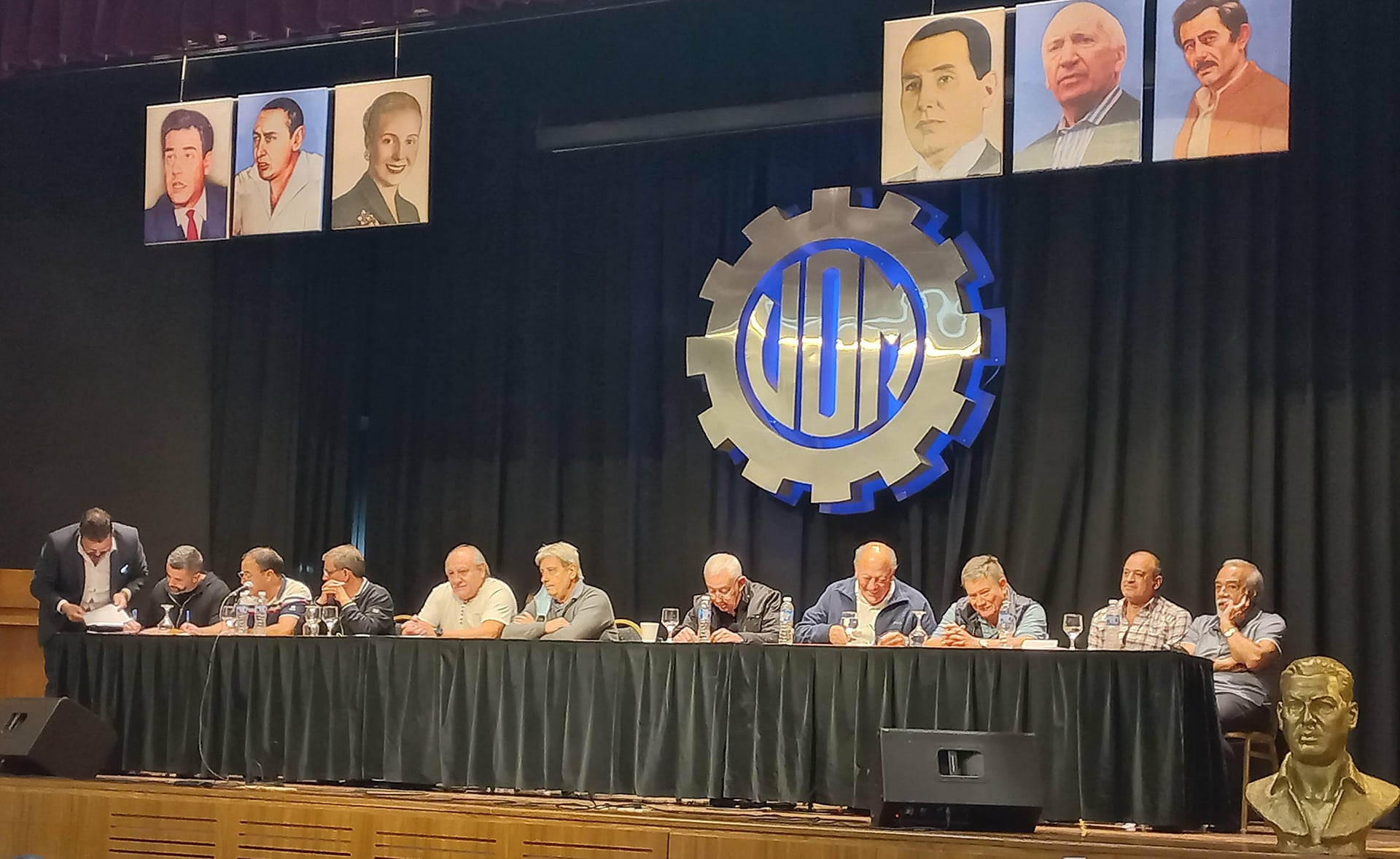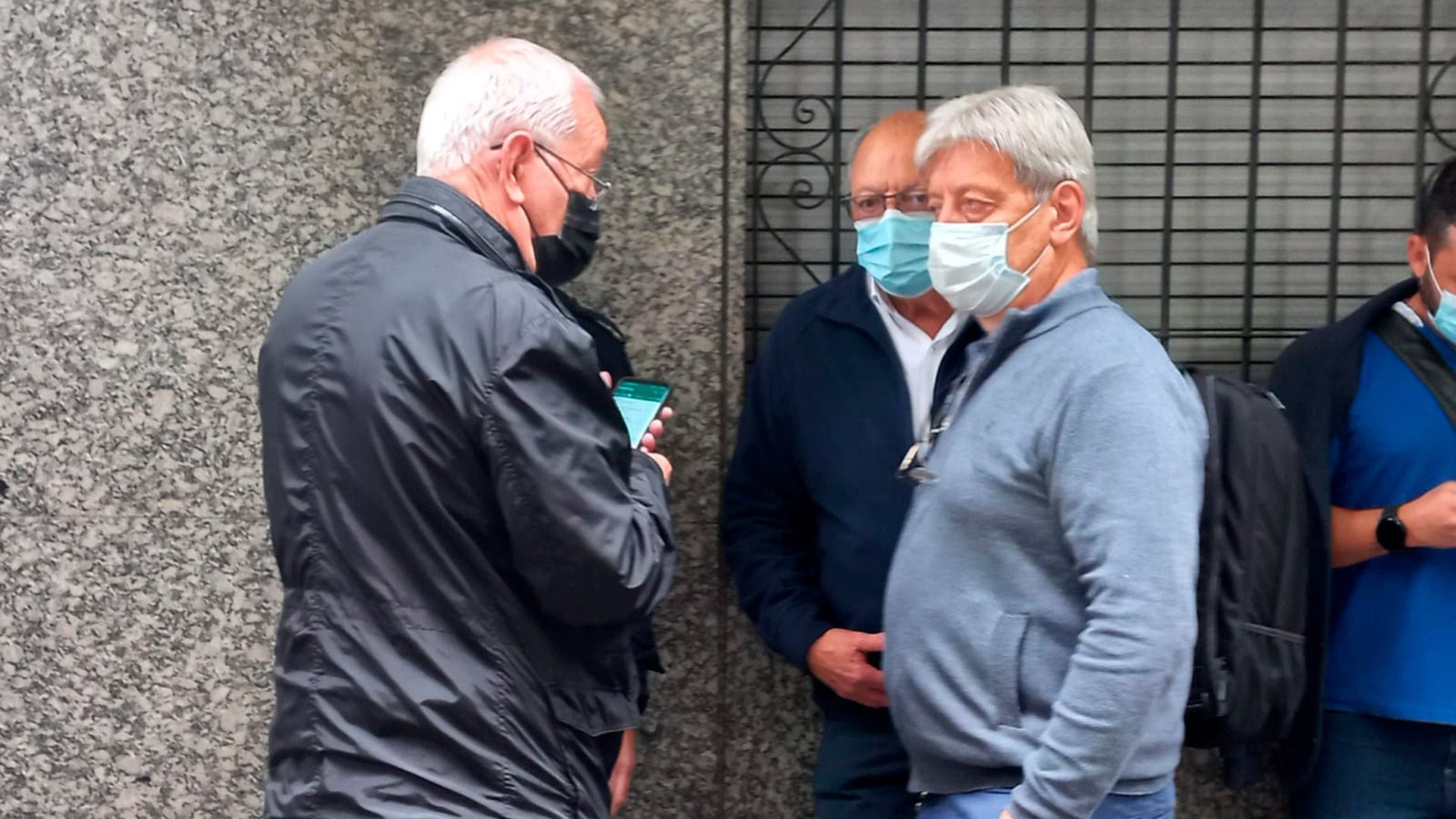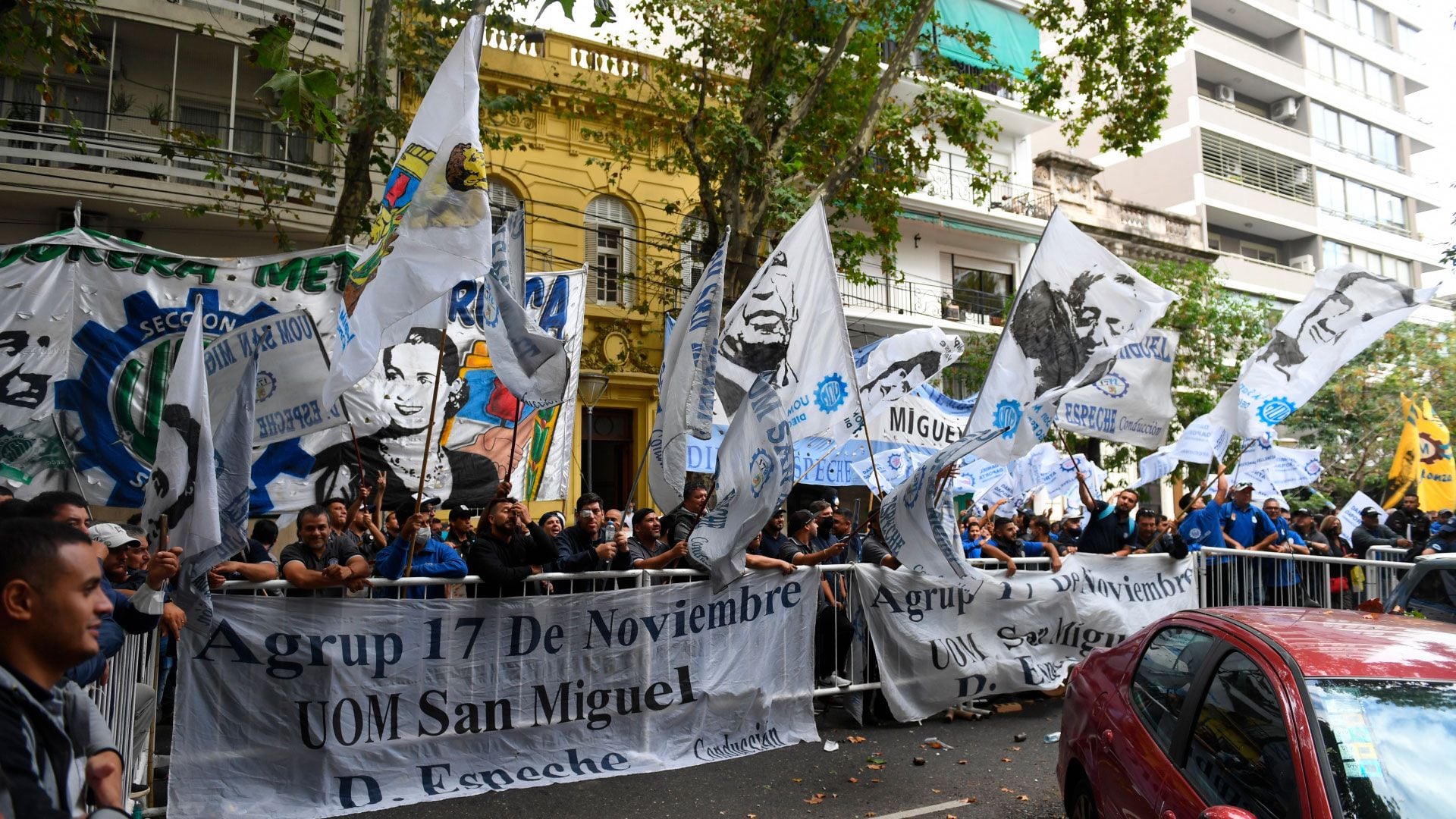
“I didn't expect this betrayal from you.” Antonio Caló said it, grieving, when he received yesterday a handful of metallurgical leaders whom he considered allies and who, at that very moment, announced to him that they were going to move him from the position he held for 18 years and that he planned to extend for another four.
The talk, rough, full of mutual reproaches, took place at 12.55 in one of the offices of the Capital Sectional of the Metallurgical Workers' Union (UOM), in the neighborhood of Almagro. In the auditorium on the ground floor, the 290 voters waited to vote for the national authorities. Everyone arrived with the certainty that Caló was going to have internal competition, for the first time in history. Some believed that it would present a battle. On the street, on Hipolito Yrigoyen in 4200, there were only militants from the rebel sectionals who for weeks planned the overthrow of the UOM chief. The activists led by Caló numbered no more than 15 and they dedicated themselves to guarding the entrance to the union.
In that meeting with his opponents, who were already in the majority, the metallurgical leader heard criticism, but returned them. “You think that the problem of UOM is Caló, but that is not the case and you are going to realize it,” he warned them. Later, before a close relative, the displaced trade unionist complained that many of the “boys” who had betrayed him had had his help to get there and grow.
Caló assured his intimates that he did not realize the conspiracy that was brewing and that he was convinced that he would achieve his re-election. “When are you going to make the list of candidates for the national secretariat,” an ally asked him last week. “On Monday,” he said, confident. Monday was the day when several of the leaders I counted as their own had changed sides and put together a list of their own, without Caló or the Capital Sectional, which ended up being supported by almost everyone.

He was so sure of his triumph that the then metallurgical chief organized a dinner for 500 people in a hall in Parque Norte (at $6,000 pesos covered), on Tuesday night, to celebrate his re-election. The meal was eventually capitalized by Abel Furlan, the union's new leader, and his brand new board of directors. Caló attended as a special guest. Alberto Fernández was not there and did not appear, as planned, at the close of the UOM congress.
Even in that gesture of institutional respect that was having gone to lunch with those who had displaced him, Caló showed that he is a leader with codes from another era. The outgoing head of UOM was confident that they were also held by Naldo Brunelli, the historic head of the San Nicolás Sectional, who has held his post since 1973 (he is 75 years old) and is so ductile that he can declare himself an admirer of Mahatma Gandhi and, at the same time, draw a gun with laser sight to show it proudly to who visit him in his office (as happened to journalists of an important morning).
Nor did Caló see in time that Brunelli himself who had agreed to be his deputy secretary in a new term would end up in the same position, but of Furlan and the rebel sectionals. This position at UOM, traditionally, was always for the Avellaneda Sectional, but this time the displaced metallurgical leader wanted to innovate because he did not trust his new leadership, which, since last week's elections, led by Daniel Daporta, a younger leader who was captaining the section for the death of his former incumbent and against whom Caló sponsored an opposition list.
That decision to remove Avellaneda from the Deputy Secretariat had a domino effect against Caló. In addition to the malaise of Daporta was that of dissident sections such as Campana, La Matanza, San Martín, San Miguel, Quilmes and Rosario, which had been negotiating stealthily. Some say that the questioned leader of the UOM learned about the internal rebellion on Monday afternoon, when the dissident command settled in the Hotel Bauen, in Callao and Corrientes, to finalize its strategy.

By then, it was too late. “I couldn't react. They didn't give me time,” Caló said with resignation when he had already fallen. That night, the rebels counted 2 10 of their own voters against 80 of the metallurgical chief, of which 27 were from Capital and of the rest only those of the Vicente López Sectional, by Emiliano Gallo, stood out. On Tuesday morning, more sectionals joined the dissident coalition. Furlan and Brunelli led the rebel delegation that spoke with Caló, in his office on the fourth floor of UOM Capital, to accept a lesser position in the secretariat. The answer was negative. The phrase “I did not expect this betrayal of you” was recorded there. It seemed that the chief in crisis was going to propose to his constituents that they vote blank as an expression of repudiation.
Furlan and Brunelli, along with a handful of allies, settled around noon at the corner of UOM Capital, in Hipolito Yrigoyen and José Mármol, to draw up the list with which they planned to compete against Caló. That corner looked like metallurgical Mecca: there was a real pilgrimage there of leaders who were officialists and turned to join the opposition move.
When the payroll was complete, the rebel duo walked 50 meters to the union building, amidst applause and cheers from the protesters who made the drums, drums, trumpets and trombones thunder (so much so that they even had to clear a kindergarten from the block). There they learned that Caló had capitulated: he would step aside. I knew I was lost.
It was 13.20 and Furlan's ascent was already defined. By show of hands, the 290 voters voted almost unanimously on the only list that was put up for consideration. Then came the vote in a dark room. There, the rebels had 227 votes, which meant that Caló, Vandor and Miguel's successor to the country's most important industrial union, former head of the CGT and top men in his union for 18 years, had only 63 supports. A whole era ended at UOM.

Close to hard Kirchnerism, Furlán is the benchmark of a new generation that broke into the main sections of the UOM and who feel more identified with the K governments than with traditional Peronism, such as Daporta, the new head of the Avellaneda Section; Adrián Pérez, brand new leader of the Quilmes Section, which beat Francisco “Barba” Gutiérrez, 38 years old in his position, and Diego Espeche, revalidated at the polls as head of the San Miguel Sectional.
They are the same ones who began to serve when Néstor Kirchner assumed the presidency in 2003, and who looked sideways at Caló, for example, when in 2017 he made the UOM available to the presidential candidacy of Florencio Randazzo, with Alberto Fernández as his campaign leader.
The “new ideas” that prevail in the metallurgical guild are obvious. Pérez, a new member of the national UOM, whose candidacy in the Quilmes Sectional was sponsored by Mayor Mayra Mendoza, from La Campora, yesterday told Infobae that “in UOM the ruling party ended just because they were officials”. And he immediately warned: “We are going to accompany the Government that with its measures defends the workers. Otherwise, we're not going to accompany him.”
It transpired that Furlán will release this Thursday his new UOM leader costume as a stellar assistant next to Máximo Kirchner of the Kirchner mobilization for March 24, which will start at the former ESMA and end in Plaza de Mayo. A sign of the metallurgical times to come.
KEEP READING:
Últimas Noticias
Debanhi Escobar: they secured the motel where she was found lifeless in a cistern
Members of the Specialized Prosecutor's Office in Nuevo León secured the Nueva Castilla Motel as part of the investigations into the case

The oldest person in the world died at the age of 119
Kane Tanaka lived in Japan. She was born six months earlier than George Orwell, the same year that the Wright brothers first flew, and Marie Curie became the first woman to win a Nobel Prize

Macabre find in CDMX: they left a body bagged and tied in a taxi
The body was left in the back seats of the car. It was covered with black bags and tied with industrial tape
The eagles of America will face Manchester City in a duel of legends. Here are the details
The top Mexican football champion will play a match with Pep Guardiola's squad in the Lone Star Cup

Why is it good to bring dogs out to know the world when they are puppies
A so-called protection against the spread of diseases threatens the integral development of dogs




